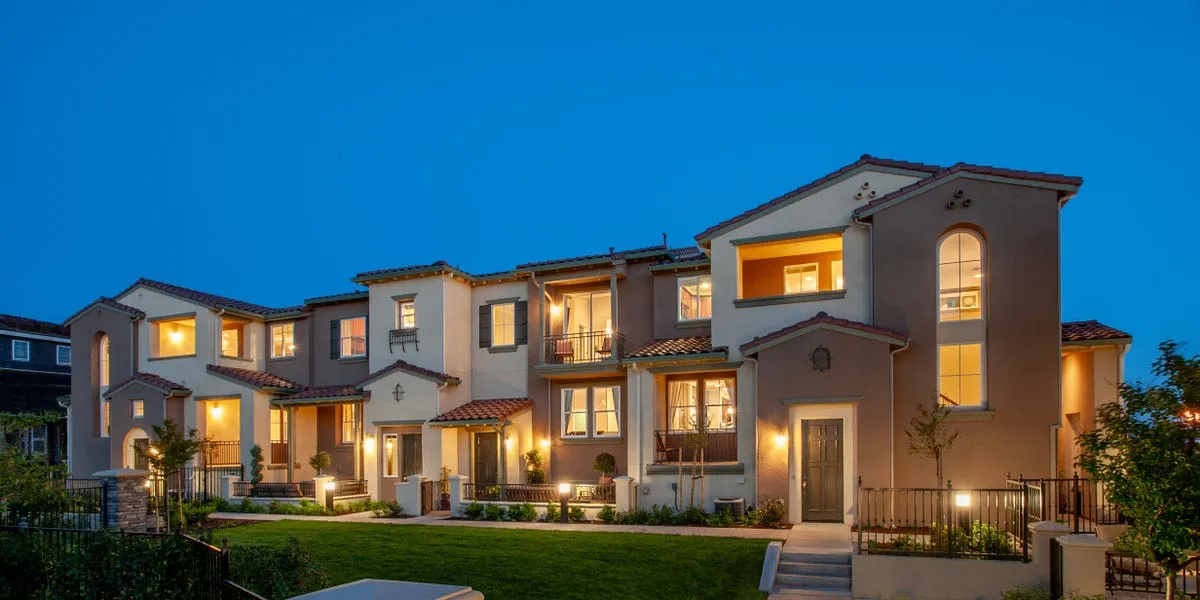
At 71, Joel Friedman is eager to sell the home he’s cherished for over three decades. This spacious five-bedroom, 5,000-square-foot residence in southern California has become too large for Friedman and his wife, Kathryn, who are now retired empty-nesters. Their goal is to downsize to a smaller, single-story house located in a 55+ community, allowing them to evade the burdens of extensive yard work and escalating home maintenance costs. However, the couple has postponed their move due to a significant concern: the capital gains tax they would face upon selling their property.
Since 1997, home sellers in the U.S. have been subject to a capital gains tax of up to 20%, depending on their income, applicable to profits exceeding $500,000 for married couples and $250,000 for single filers. “There are a million reasons why we’d like to move, but we’re not because the tax is just burdensome,” Friedman stated. The couple hopes to rely on the profits from their future home sale to help fund their retirement. With concerns surrounding the sufficiency of Social Security benefits and Kathryn's pension to cover healthcare and long-term care expenses, their decision to stay put highlights a growing trend among potential home sellers.
The hesitance to sell due to capital gains tax has contributed to a noticeable shortage of family-sized homes on the market. Many older homeowners, like the Friedmans, view their properties as essential components of their retirement plans. Recent statistics reveal that the share of home sales subject to this tax has more than doubled in recent years, driven by skyrocketing home prices. According to the National Association of Realtors, about 34% of American homeowners—approximately 29 million people—could exceed the $250,000 cap for single filers if they sold their homes, while 10% could surpass the $500,000 threshold.
In 2023, 8% of U.S. sellers reported profits exceeding $500,000 from home sales, significantly up from just 1.3% in 2003 and 3% in 2019. Adjusting the $250,000 cutoff for inflation since its inception in 1997 would raise it to around $496,000 in 2024 dollars, illustrating the growing disparity between the tax threshold and current market realities.
There may be potential relief on the horizon, as recent discussions around eliminating the capital gains tax on home sales are gaining traction. Former President Donald Trump expressed interest in this idea, stating, “If the Fed would lower the rates, we wouldn’t even have to do that… But we are thinking about no tax on capital gains on houses.” This bipartisan conversation has sparked renewed hope for homeowners like the Friedmans, who recently listed their house for nearly $4.5 million but have since allowed their listing to expire in anticipation of potential tax reforms.
While there is bipartisan interest in reforming the capital gains tax, the implications of such changes are complex. For instance, Republican Rep. Marjorie Taylor Greene introduced legislation aiming to eliminate the tax altogether, while Democratic Rep. Jimmy Panetta proposed a bill to double the exclusion amounts and index them to inflation. Panetta emphasized the need for collaboration across party lines to incentivize homeowners to sell and increase housing inventory.
Yet, experts warn that easing the capital gains tax burden may not resolve the fundamental housing shortage in the U.S. Selma Hepp, chief economist at CoreLogic, noted that while this could stimulate market activity, it may not necessarily lead to more available homes, as older sellers still need to find new residences.
Critics argue that eliminating the capital gains tax would disproportionately benefit higher-income Americans, further tilting the tax code in favor of the affluent. David Levin, 71, shared his concerns, stating that despite being ready to downsize from their four-bedroom home in Manhattan Beach, the capital gains tax makes it financially challenging to do so. “Even a much smaller home in the coastal California city would be out of budget,” Levin lamented.
As the Friedmans and other older homeowners grapple with the implications of the capital gains tax, the broader housing market continues to face challenges. Initiatives to reform the tax may be on the table, but the question remains: how can the U.S. effectively address the ongoing housing supply crisis while ensuring equitable treatment for all homeowners?